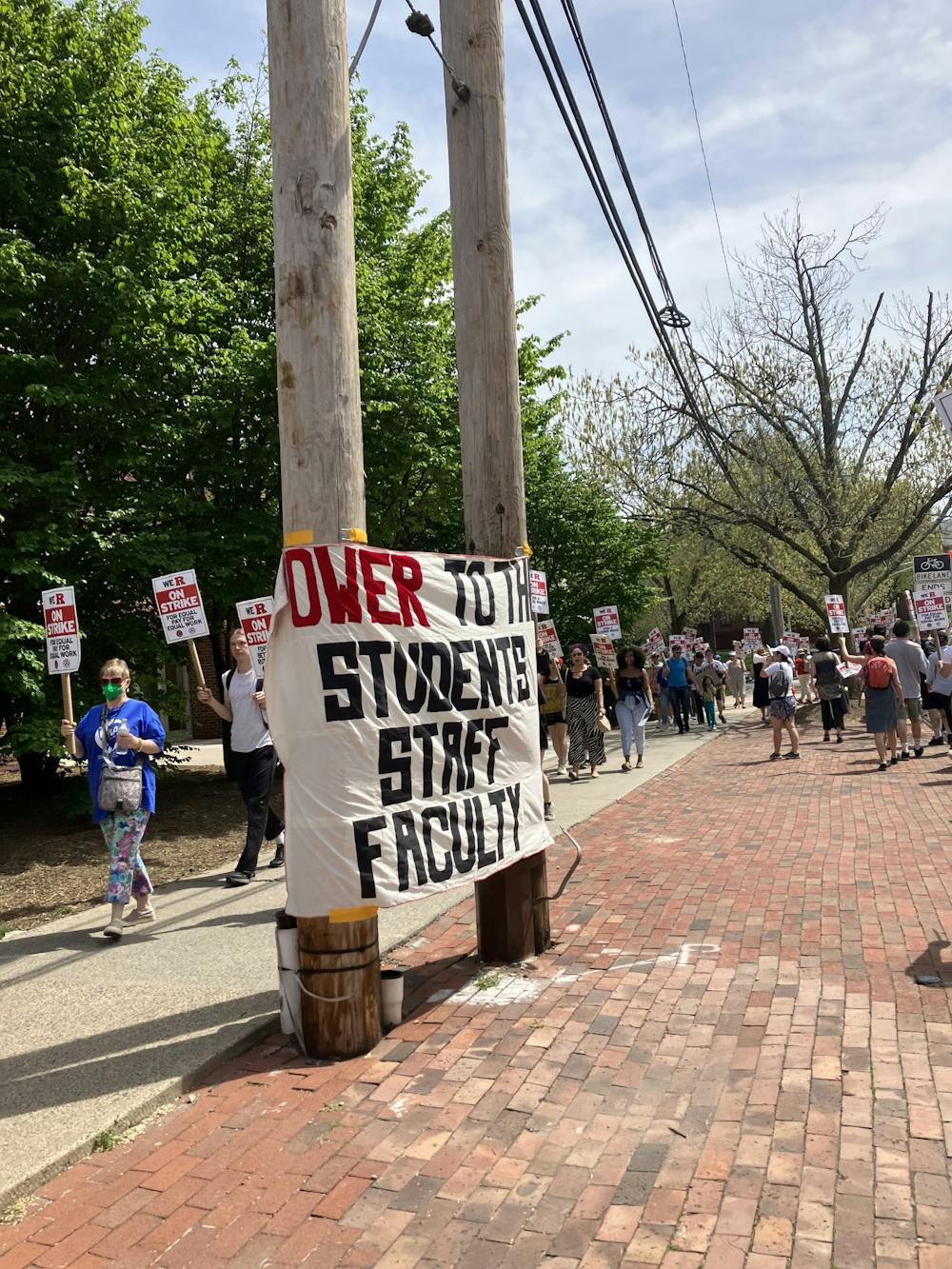Contract negotiations continue between members of three employee unions and administrators at Rutgers University after a nine-day strike was suspended by the union last week. A fourth union of administrative employees are holding their own protests.
While Princeton and Rutgers have been historic rivals, shared objectives between the universities’ unionized groups have now brought members of the institutions together. Representatives from the Princeton Graduate Student Union (PGSU) were seen at Rutgers protests. The universities lie 20 miles apart.
The three organizing unions of the strike are the Rutgers Adjunct Faculty Union, the AAUP-AFT, and the AAUP-BHSNJ — representing part-time lecturers, full-time faculty, graduate workers, postdoctoral associates and counselors, and faculty in the health and sciences departments, respectively. Collectively, these groups comprise over 9,000 members of the Rutgers community.
Rutgers unions’ demands echo those raised recently by graduate and postdoctoral groups at Princeton University. A semester-long push for unionization from PGSU this spring resulted in over 3,000 graduate students — a majority of the graduate student population — signing union cards. The union card campaign started following a rally of over 150 people in Scudder Plaza. The group has not voted to affiliate with a national union yet.
Strikers’ demands included increased wages, race and gender equity, and the use of salary scales. According to Rebecca Givan, the president of AAUP-AFT, the call is for “a better Rutgers.”
In response to a request for comment, Rutgers University spokesperson Dory Devlin referred the ‘Prince’ to the university’s most recent statement on the matter, issued on April 20.
“We continue to be in daily negotiating sessions and believe that we are coming closer to agreements every day,” the statement reads. “Our focus right now is on reaching an agreement beyond the framework agreed to on Friday and supporting our students' continued academic progress.”
Members of PGSU have been following the strike at Rutgers, and many joined those striking on the picket lines “to stand in solidarity with [their] academic neighbors.”
“I found it really inspiring and joyous to see the level of support and camaraderie among workers across all parts of Rutgers and the wider NJ area at these events,” Tim Alberdingk Thijm, an organizer of PGSU, wrote in a statement to the ‘Prince.’
“I think we’re all looking forward to them winning a final tentative agreement that meets members’ needs, including those of Rutgers’ graduate workers, who like many of us lack sufficient salary guarantees, overtime protections for TAships and access to affordable quality housing,” Thijm added.
In addition to recent unionization efforts from the PGSU, postdocs at Princeton published an Open Letter in Jan. demanding for improvements to postdoc compensation.
Princeton responded by increasing the minimum salary from $54,840 to $65,000 — an 18.5 percent raise.

“This was below our ask, which was for a minimum of $67,500 with corresponding scaling for experience,” Princeton University Postdocs and Scholars (PUPS) wrote in a statement to the ‘Prince.’ Faculty and Principal Investigators were also not given additional guidance or funding for scaling from experience.
Recently, academic institutions nationwide have seen a surge in collective action among faculty, researchers, and graduate students. Columbia University graduate workers’ participated in a 10-week strike last year and Boston University graduate students overwhelmingly voted to unionize in December. Rutgers and PGSU’s efforts also come four months after 48,000 academic employees at the University of California’s ten campuses walked off their jobs as the nation’s largest education strike. Currently, a strike led by graduate students from the University of Michigan is ongoing.
As negotiations still continue, Givan expressed that Rutgers unions are “not finished yet.”
“We’re proud of the progress we’ve made, and we intend to make sure our staff colleagues who are still seeking contracts win their demands as well,” Givan wrote.
Tess Weinreich is an associate News editor for the ‘Prince.’
Lia Opperman is an associate News editor for the ‘Prince.’
Please send any corrections to corrections[at]dailyprincetonian.com.








